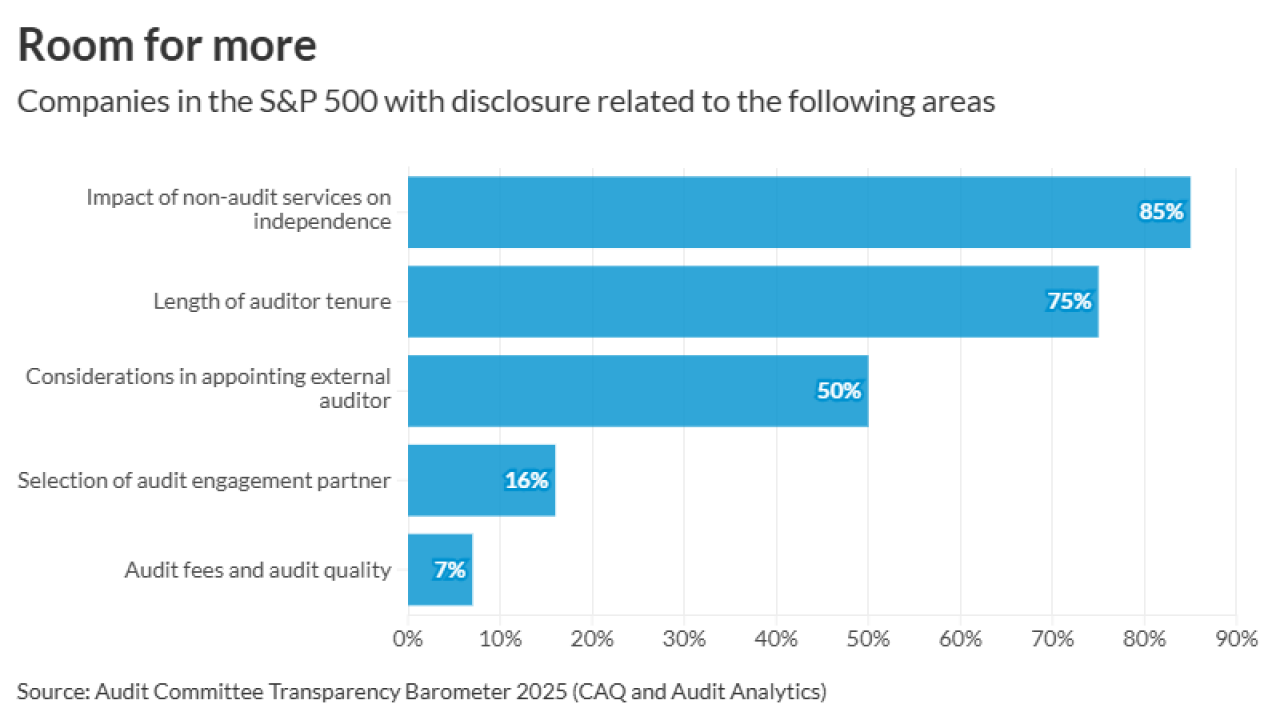The pace of accounting standards convergence is accelerating, and is being driven primarily by an investment community that is rapidly embracing International Financial Reporting Standards.
At the same time, technological changes, such as the growing acceptance of the Extensible Business Reporting Language, are challenging the need for the traditional historical financial reporting model. These changes are all converging, which will have a tremendous impact on the accounting and auditing model.
The Securities and Exchange Commission is working on a number of initiatives to ease these pressures, one of which is on the international front: expediting the convergence of U.S. GAAP with IFRS. The transition to a more objectives-oriented set of standards similar to IFRS has been progressing steadily since a concept release in 2000. In that release, the SEC outlined a framework for the convergence process.
The process has been ongoing, but questions are beginning to arise as to whether convergence has come far enough that U.S. markets can accommodate both sets of standards.
The Financial Accounting Standards Board/International Accounting Standards Board convergence process is unique compared with the convergence process in other countries, where IFRS is increasingly accepted. Rather than just reducing differences to achieve convergence, the FASB-IASB process focuses on achieving the highest-quality standards. Furthermore, convergence does not necessarily mean that the two sets of standards will produce the same exact results.
SEC ROUNDTABLE
In March 2007, the SEC convened a roundtable regarding the IFRS "roadmap," proposing a process for eliminating the SEC requirement for foreign private issuers to reconcile financial statements prepared under IFRS to GAAP. Participants of the roundtable included issuers, investors, underwriters and CPAs. The group generally concluded that the IFRS-GAAP reconciliation requirement should be eliminated in the near future.
As a result of the roundtable, the SEC issued a proposed rule in July to eliminate the GAAP reconciliation requirement for foreign private issuers who file financial statements prepared in accordance with IFRS. In
November, the SEC voted in favor of this proposal. The SEC also issued a concept release in which it would explore whether U.S. issuers should be permitted to prepare financial statements in accordance with IFRS.
While the SEC moves to allow foreign firms listed on American stock exchanges to file statements according to international standards, a national survey states that U.S. financial leaders are not convinced this is a good idea. According to a study by Grant Thornton, 56 percent of responding CFOs and senior comptrollers disagree with the SEC position. In addition, 49 percent believe that U.S. companies with large overseas operations should not be able to file statements using IFRS. However, a large majority -- 91 percent of public companies and 75 percent of private companies -- agreed that current U.S. standards are overcomplicated, and 67 percent admitted a preference for principles-based standards.
The implications of these changes should not be minimized. Many issues need to be considered, including the security of the U.S. markets, the roles of various standard-setters, enforcement mechanisms at the international level, the ability and willingness of other nations to strive for and achieve the high-quality standards of financial reporting, the funding mechanism for IASB -- which is currently voluntary -- and the training costs and transition time to a new standard. Additionally, as IFRS is more principles-based and requires a greater degree of professional judgment, variations in accounting treatment may result. This is an uncomfortable proposition for practitioners accustomed to consistency.
At the same time, the underlying cause for much of GAAP's complexity is the U.S. regulatory and legal environment. Clearly, reform is imperative if practitioners are going to be required to use a greater degree of judgment.
A number of initiatives are in progress to reduce the growing complexity: The SEC has created an advisory committee on improvements to financial reporting to study ways to improve reporting and reduce complexity. The Private Company Financial Reporting Committee has been launched to serve as an advocate at FASB for privately held companies. FASB is working on a codification project that will flatten the GAAP hierarchy to two levels: authoritative guidance and non-authoritative guidance. The goal is to create a complete set of standards that can be accessed topically.
On the international level, the IASB has published an exposure draft that seeks to provide a streamlined set of accounting principles for smaller, non-listed companies based on IFRS.
XBRL AND REPORTING
Changes are also developing in the area of how financial and nonfinancial information is conveyed to the investment community. XBRL and sustainability reporting will impact the convergence equation as we focus less on historical accounting issues and more proactively on strategic reporting. This change in focus will also change the role of auditors.
XBRL is a technology that can globally transform the process for communicating financial information. It provides investors with access to increasingly detailed information that is continuously updated and can be automatically downloaded into basic software products. XBRL also enables more accurate, expedited analytics, benchmarking and control analysis. The "data tags" used by the reporting language are universal, so information can be seamlessly compared across borders.
In addition, the SEC agreed to spend $54 million on a project to overhaul the Edgar filing system to leverage XBRL. The SEC has since announced the completion of the mapping of all of GAAP.
CONCLUSION
The idea of all these convergence efforts may spark fear in those resistant to change, but opportunities abound for CPAs eager to embrace them. There will be a need for CPAs familiar with both U.S. and international standards to assist in the transition to IFRS. Companies will be looking for experts as they reconfigure their reporting processes, and there will be a need for XBRL and IFRS trainers.
At the same time, numerous challenges lie ahead. The costs and time for retraining will not be immaterial. Changes will need to be made to the CPA Exam and the standard accounting curriculum. Finally, to a large degree, we may yield control of our professional guidance to an international standard-setter. This undoubtedly will affect the accounting profession in the U.S. as a whole. It is imperative that CPAs -- in industry, practitioners and professors -- keep up with the process and continue to monitor the changes as they unfold.





